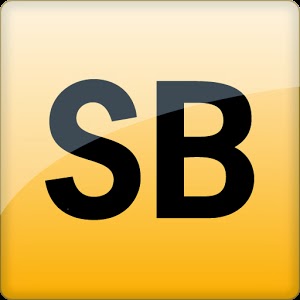Richard Byrne, educator, speaker, writer and blogger at Free Technology for Teachers has maintained two additional sites for the past several years, iPad Apps for School and Android For Schools. Last month he posted about an app for Android tablets only, Storyboarder. I decided to feature it here today because I found several similar programs available for Apple devices.
 Storyboarder is free program which allows you to create image boards. Once Storyboarder has been downloaded on your device, open it to begin. At the first screen there will be a white background with a small yellow icon in the upper right-hand corner with the words Create New. Select the icon.
Storyboarder is free program which allows you to create image boards. Once Storyboarder has been downloaded on your device, open it to begin. At the first screen there will be a white background with a small yellow icon in the upper right-hand corner with the words Create New. Select the icon.
After choosing to Create New another window opens asking you to give your board a title and include a short description. When completed select Create. At the next window in the upper right-hand corner you will have two options, share and photo. Select photo to add images to your board.
You will be prompted to Take Photo or Choose from Gallery (the images on your device). If you choose Take Photo the application goes to the camera on your device. After taking the picture you can save or cancel it. If you save it, it automatically appears on your working board. Any image selected from your gallery will be copied to the board.
By tapping on an image, descriptive text can be added. When you have completed this step, select the blue Done button on your keypad. Your added text will appear on the original screen. Notice the trash can in the lower right-hand corner. If you no longer want to include this picture, it can be deleted. Rather than going back to the board, you can scroll through your images by dragging the screen to the left or right. To go back a step, choose the tiny yellow arrow in the upper left-hand corner.
If all the text has been added to your pictures, you can next tap on Share in the upper right-hand corner. You have the options of sending it as a PDF file via email or uploading it to Dropbox. You can also save it to your device as a PDF file. There are several email choices also.
When your task has been completed by choosing the tiny yellow back arrow key, you are taken to the original board with the white background. Now you can see your created boards. Boards can always be edited. The one thing I wish you could do is change the order of the pictures once they are on the board.
This is what the PDF file looks like. I used Storyboarder to practice writing single sentences describing photographs I took when Xena and I were walking. Students could use it to do the same.
Through a series of images, the order of story elements could be practiced. By taking a picture of a book's cover, predictions could be made about the story's plot or the contents covered in a nonfiction book. A student's reading life and their thoughts about each book could be documented. Generating top ten lists are another option, too.
Simple and user friendly, I recommend Storyboarder for personal or professional use.
.png)
.png)
.png)
.png)
.png)
.png)

.png)
.png)
.png)
.png)

No comments:
Post a Comment